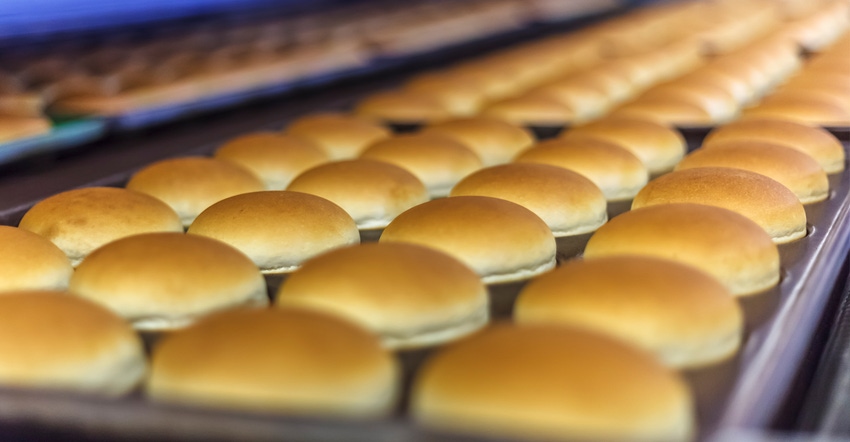
It’s common knowledge in genetics — you can breed a crop for high-yield or high-quality characteristics. But rarely can you get both in the same crop variety.
However, a collaborative project between Kansas State University wheat experts and Kansas Wheat called Wheat Rx is aiming to find the right prescription of wheat varieties and management techniques to change that common knowledge. And now that the wheat genome has been mapped and have more management tools at our disposal, you could say, “The doctor is ready to see you now.”
Quality vs. quantity challenge
Aaron Harries, vice president of research and operations for Kansas Wheat, says if wheat farmers can find the right prescription for economical and sustainable production of high-quality winter wheat in Kansas, they could find improved markets for their crop. Harries spoke during the Kansas Wheat Rx Seminar, Feb. 9, in Hays, Kan.
Today, 50% of every acre of the winter wheat grown in the state is destined for an export market. Producing high-quality wheat is how American farmers distinguish themselves against their biggest competitors, Russia and Canada.
The other half stays here to be milled into flour for use in loaf breads, flour tortillas and other products. Now, flour millers like Grain Craft need certain quality characteristics in the winter wheat grain to meet bakeries’ exacting needs. In recent years, those quality characteristics have been hard to source in parts of the hard winter wheat region. That’s because farmers — who are paid on yield and not quality — are selecting varieties based on how high they’ll yield, and not the quality of flour they may produce.
“The stars are aligning with technology and what we know about wheat,” Harries said. “This is a new golden age for wheat research that will help the wheat farmers of tomorrow be environmentally sustainable with their production methods and economically sustainable for their farms’ financial stability.”
This movement is already starting to show results, Harries added. By starting with high-quality seeds from public and private breeding programs, combining them with advanced agronomics and adding in management methods to improve soil health and sustainability, the average winter wheat yield in Kansas has risen from 38 bushels per acre to 49 bushels per acre today over the last six years.
Meet bakers’ needs
Reuben McLean is the senior director of quality and regulatory for Grain Craft. Grain Craft is the third-largest U.S. miller, requiring about 330,000 bushels of wheat every day to produce 15.3 million pounds of flour daily from its 13 individual mills across the U.S. Every year, 30% to 40% of its wheat is sourced from Kansas farmers. Hard red winter and hard white winter wheat make up the bulk of the wheat Grain Craft grinds, McLean said.
That means if growers in Kansas, Oklahoma, Nebraska or anywhere else in the Great Plains have a lower-quality wheat crop, they hear about it from their bakery customers.
Grain Craft pays particular attention to the milling and baking characteristics of the wheat varieties being developed in public and private programs. Their bakery customers — like Groupo Bimbo, for example — need to have flour that will perform consistently in their automated bakeries. A sudden change in water absorption or mixing time from one batch of flour to the next can prove costly to them.
That’s why in the last decade, the trend of increasing winter wheat yields over quality characteristics has been disturbing, McLean said.
“Everest was the No. 1 wheat variety planted in Kansas for many years,” McLean said. It was bred to be resistant to fusarium head blight for one region. That meant that much of the wheat Grain Craft could source from Kansas was Everest.
“In 2014, the phones started ringing with complaints from customers,” he continued. The flour didn’t have the mixing tolerance they needed, it couldn’t hold water and more, he said. Grain Craft started to bring in spring wheat from other states to blend with the hard red winter wheat to fix it.
“These varieties that are high-yielding might appear to be beneficial for you short-term, but really you’re kind of losing your market share,” McLean said. “If you’re blending hard red spring at 20%, there’s 20% of your demand that’s gone.”
Farmers will grow what works for their farms agronomically and economically, of course, McLean says. But a project like Wheat Rx can help ensure that they meet their export and domestic markets’ demand for quality.
Research points
This first year of research results from Wheat Rx provided some recommendations for growers to consider:
Fertility management. Dorivar Ruiz Diaz, K-State professor of agronomy, said this year, farmers should consider how much moisture they might get to fully use their nitrogen. Some farmers might also see a yield response by applying sulfur and chloride, if their soil tests require it.
Fungicides. Kelsey Andersen Onofre, K-State assistant professor of plant pathology, said farmers can protect their yield and quality by applying fungicides in a timely manner. In 2021, 14.4% of yield in Kansas was lost to diseases like strip rust, fusarium head blight and wheat streak mosaic.
Intensive management. Romulo Lollato, K-State Extension Wheat and Forages specialist, advised growers to manage their planting dates and seeding rates, and to start with high-quality, cleaned seed.
Kansas Wheat has a page devoted to the research coming out of the Wheat Rx project.
About the Author(s)
You May Also Like






